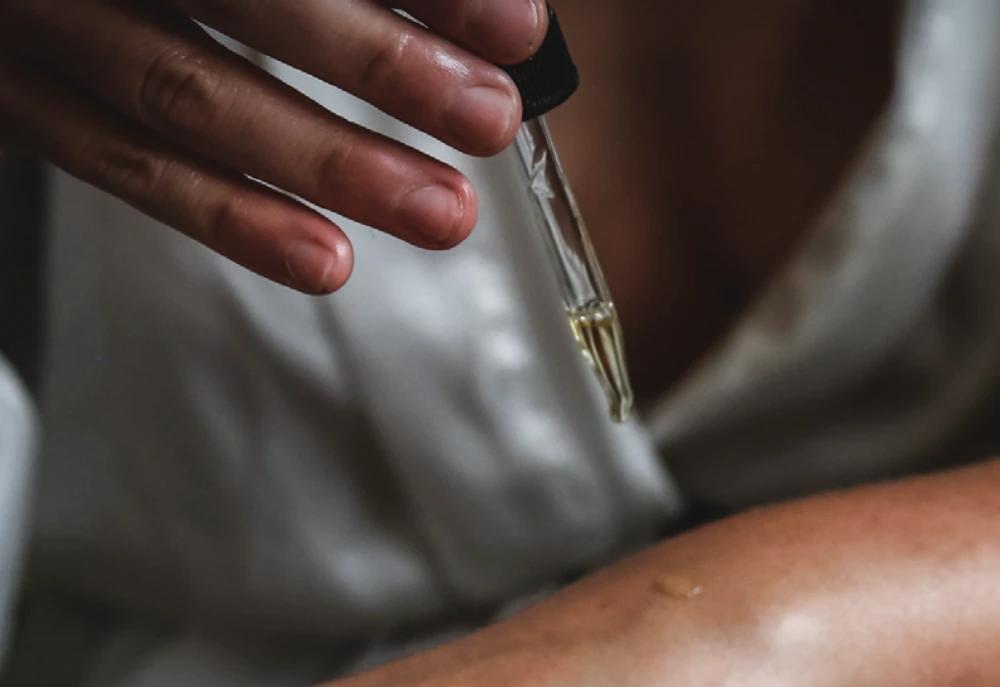As days shorten and nights grow in length, your body's chemical balance and rhythms change. Starting around fall and through the winter, it’s common to experience the “winter blues”. Scientists associate this winter-related mood disorder with a reduced exposure to sunlight.
This isn’t the typical stress associated with winter festivities. The winter blues come with overwhelming sadness and a lack of interest in once pleasurable activities. This winter depression is the infamous SAD (Seasonal Affective Disorder).
If you’re bogged down by the winter blues, don’t despair. There might not be enough sunshine to go around, but you can create a ray of hope to illuminate your world.
Let's consider how you can turn moments of gloom into hope and happiness.
Why use essential oils for SAD?
Essential oils work.
That's the simplest answer. To paint a better picture, consider how the winter blues and essential oils work.
Shorter days affect serotonin levels produced in the body. This hormone regulates how perky, upbeat, and bubbly you are on any given day. Lower serotonin production because of reduced sunlight will likely shift your emotions, causing you to look and feel like sulking.
Research shows that aromatherapy may stimulate serotonin release in the brain. [1] Despite minimal sunlight during wintry periods, essential oils may regulate your emotions. You'll feel better about yourself and experience fewer low days.
Essential oils also tackle SAD on a symptomatic level. This winter-related disorder will throw various undesirable symptoms your way, but essential oils can help you keep them at bay.

5 Essential oils for the winter blues
Research has revealed how essential oils provide relief against symptoms associated with SAD. Let's explore these 5 essential oils for the winter blues and its many symptoms.
Bergamot Essential Oil (Citrus bergamia)
Bergamot is reminiscent of the great outdoors and vibrant sunshine. It's a cheerful aroma to have close when winter chills your heart.
Frequent inhalation of bergamot oil infuses the heart with hopefulness and joy. Moments of despair and gloom are no match for bergamot.
This is an ideal essential oil for the winter blues, as it influences serotonin release in the brain. [1]
This regulates mood and may help transform your down days into memorable, joyful ones. When darkness settles over your head like a cloud waiting to burst, bergamot brings you sunshine, leaving you in high spirits. It's uplifting and mood-enhancing. [2]
Best suited for: Mood swings
Sweet Orange Essential Oil (Citrus sinensis)
Like bergamot, sweet orange oil evokes a buoyant, chirpy aroma. This is a must-have essential oil for the winter blues.
As SAD is a type of seasonal depression, expect it to disappear once wintry periods fade into spring. However, succumbing to performance dysfunction for up to 5 months each year is a grueling way to live.
Depression prevents you from putting your best foot forward. It stifles productivity. Diffusing the calming yet uplifting aroma of sweet orange can change the tides.
A clinical study performed with about 150 participants demonstrated this oil's anti-depressive properties. At 2%, sweet orange oil performed better than Prozac, a well-known medication used to treat major depressive disorders. [3]
Have you had enough of seasonal affective disorder? Are you tired of walking around with shoulders slumped and your head hung in sadness?
Consider diffusing sweet orange oil. This sweet, citrusy fragrance makes the winter blues easier to handle, as you're better able to cope with depression.
Best suited for: Depression
Peppermint Essential Oil (Mentha piperita)
Melatonin levels spike during winter. People with SAD produce more melatonin than the body needs to try to adjust its circadian rhythm. But don't let that fancy word scare you - your circadian rhythm is the internal clock that regulates when you wake and fall asleep.
Melatonin is the hormone produced in the body that regulates your circadian rhythm. It’s often called the hormone of darkness, as more of it is produced when it’s dark.
Excessive levels of melatonin make you sluggish and sleepy. With shorter days and fewer bouts of sunshine, your body becomes fatigued.
You feel drained and sapped of energy. Crawling to bed before 'bedtime' is common, as spiked melatonin levels induce sleep.
As someone who is victimised by excessive daytime sleepiness, peppermint oil was a must-have for me ((and still is). Whenever my body needs a pick-me-up, I take deep whiffs from the bottle. This imbues me with energy to get tedious brain work done.
Peppermint oil can be refreshing and invigorating. The oil is cooling by nature, as it contains the alcohol menthol. Peppermint oil's impact on mental and physical stamina is highly beneficial. [4]
Although there aren't many studies conducted on peppermint oil's effect on daytime sleepiness, a preliminary investigation showed promising results where the oil did reduce daytime sleepiness. [5]
From personal experience, this oil is worth every penny during the winter months.
When you have a growing list of things to do with little to no energy to spare and eyes that are ready to give in to slumber, peppermint oil is your best friend.
Best suited for: Low energy and excessive daytime sleepiness
Rosemary Essential Oil (Salvia rosmarinus)
Winter blues come with brain fog. This obscures cognitive function and makes it difficult to remember things. In short, winter depression causes a lack of focus.
Simple tasks become burdensome, and it's difficult to sit still to get anything done. Impaired judgement is also commonplace with SAD.
I've endured many of these days. Rosemary oil stood by me like a stalwart, loyal soldier. When my creativity was fleeting and my brain fog made it difficult to function, this oil kept me going.
If you're feeling confused and unable to concentrate, rosemary may help your situation. According to research, rosemary oil may increase alertness, focus, and problem-solving skills. Eucalyptol (1, 8 cineole) and camphor are predominant compounds in rosemary oil. These phytochemicals (chemical substances created by plants) excite the cerebral mantle to encourage alertness and clear the mind. [6]
What does this mean for you during winter blues?
When you feel uninspired and lack creativity, diffusing rosemary may increase alpha brain waves to give you a jumpstart. These are electrical impulses in the brain that keep you mentally coordinated.
With a moderate dose of exercise in the mornings and a bottle of rosemary oil nearby, you'll be able to think with clarity.
Best suited for: Lack of concentration and focus
Lavender Essential Oil (Lavandula angustifolia)
Negative thoughts work alongside depression. This plunges one further into darkness, especially as winter periods wear on. With insufficient sunlight to go around, agitation and negativity can set in.
Lavender oil is soothing and calming. As one of the most studied essential oils, its ability to put you in a mellow, peaceable mood is unmatched.
The phytochemicals linalool and linalyl acetate give this sweet, floral fragrance its power. Each natural chemical enhances the effect of the other, making it a powerful force to reckon with. They give lavender essential oil its sedative and calming properties.
A study revealed lavender oil's impact on negativity. Eighty women with negative dispositions participated, with hopes of changing their outlook. For this study, 20% lavender was combined with 80% grapeseed oil in a bath to assess its impact. After 14 days, these women were less agitated and had brighter outlooks on the future. [7]
Like these women, you can use lavender oil to encourage feelings of calm and hope. Even without much sun to bask in during the winter, you can maintain positive, healthy emotions.
You might not be up for taking lavender baths daily. That's just fine. Diffusing the oil will give similar results.
Best suited for: Dispelling negativity and encouraging positivity
Essential oils that influence serotonin transmission
Scientists surmise that a lack of sunshine is the biggest cause of SAD. [8] This reduces serotonin transmission and causes overproduction of melatonin. Decreased sun exposure also means lower levels of vitamin D and changes in the sleep-wake pattern.
While essential oils can’t replace the sun, they do affect serotonin transmission in the body. Regular diffusion of oils such as ginger, lavender, rosemary, bergamot, and lemon may influence the secretion of this hormone. [9] [10] [11] [12]
How to use essential oils to relieve the winter blues
The best way to use these essential oils for winter blues is through diffusion. Using our elegant, robust and functional diffuser is enough to lift your spirits and keep you cheerful.
You can choose to diffuse single essential oils for SAD. Simply add 10 - 20 drops of any oil from this list to your diffuser and embrace cheerfulness.
While single oils get results, diffusing blends of essential oils for winter blues can be more powerful. This is because chemicals from each oil combine to create more potent, synergistic effects.
Final thoughts
When you’re looking to concentrate and think with clarity, try diffusing our ‘Focus’ blend. To beat daytime sleepiness and build stamina, try our ‘Energy’ blend.
The winter blues can get intense. While you diffuse your oils for support, moderate exercise and exposure to light are important. Where possible, get as much natural light as you can, and keep diffusing your oils to elevate your spirits.
Do you need help choosing the right essential oil for winter blues? You can contact an aroma expert at support@volantaroma.com for advice and assistance.





